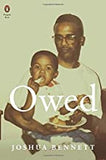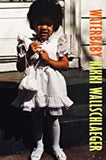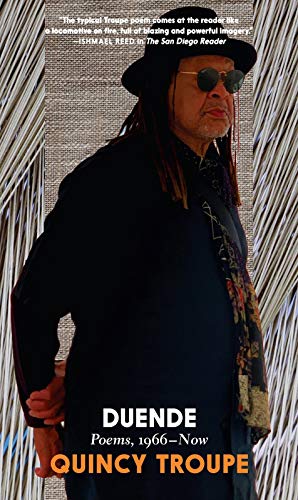The selected poems from over fifty years by the great poet and biographer and friend of Miles Davis.
Quincy Troupe writes poetry in great waves. The words are just notes. It's the music you make with them that matters. He's not a wordsmith, he's a shaman conjuring long repetitive lines, cadences of looking across the sea towards Africa and haunted by the legacy of slavery and racism, or of remembering fellow conjurers, poets and musical artists, celebrating, always celebrating, but never only that.
In the fifty-page, incantatory poem, "Ghost Voices," there is a longing to be reconnected to the past, and a longing too to be free of it. In the short title poem, "Duende: For García Lorca and Miles Davis," there lies, nakedly, Troupe's credo: "...secrets, mystery infused in black magic / that enters bodies in forms of music, art/ poetry imbuing language with sovereignty / in blood spooling back through violent centuries..." The version of the great poem "Avalanche (number 3)" that appears here is different from the version of the same poem he published nearly 25 years ago--in exactly the same way that a jazz artist picks up his horn to play the same song a little differently every time.
Quincy Troupe writes poetry in great waves. The words are just notes. It's the music you make with them that matters. He's not a wordsmith, he's a shaman conjuring long repetitive lines, cadences of looking across the sea towards Africa and haunted by the legacy of slavery and racism, or of remembering fellow conjurers, poets and musical artists, celebrating, always celebrating, but never only that.
In the fifty-page, incantatory poem, "Ghost Voices," there is a longing to be reconnected to the past, and a longing too to be free of it. In the short title poem, "Duende: For García Lorca and Miles Davis," there lies, nakedly, Troupe's credo: "...secrets, mystery infused in black magic / that enters bodies in forms of music, art/ poetry imbuing language with sovereignty / in blood spooling back through violent centuries..." The version of the great poem "Avalanche (number 3)" that appears here is different from the version of the same poem he published nearly 25 years ago--in exactly the same way that a jazz artist picks up his horn to play the same song a little differently every time.




